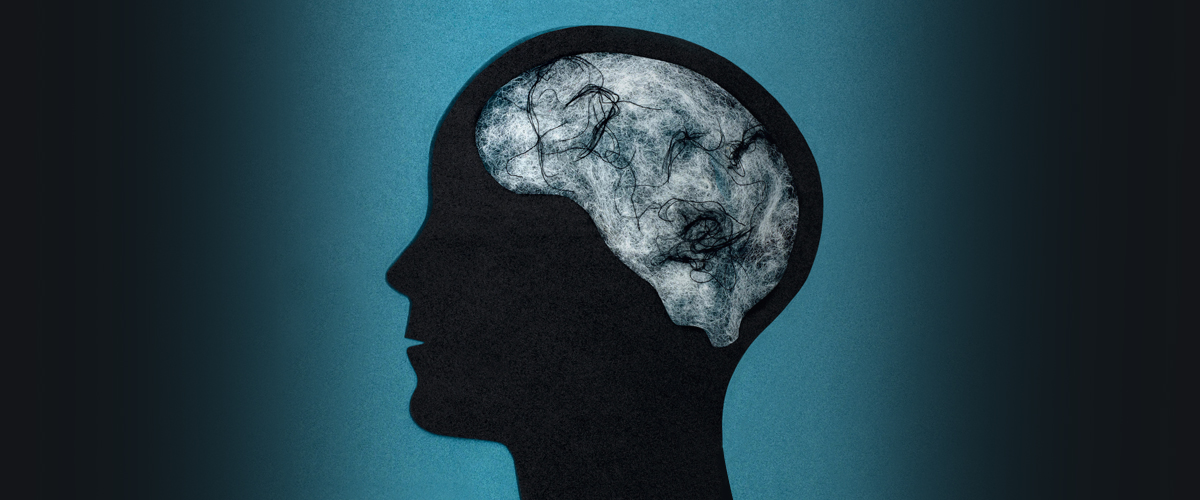COVID''s Long-Haul Neurological Effects
"This study shows there are brain consequences of a long-term nature [from COVID-19].""As people focus on the acute effects of COVID-19, the long-term effects have been playing second fiddle. It may be the long-term effects have a greater impact on society; they may be with us for a very long time.""[The long-term impact of serious brain impairment following COVID could be] not unlike dementia [in some people].""[The U.K. study] demands we take a closer look [at the effect on the brain of COVID-19].""This is a hidden challenge to Canadian society that needs to be addressed in the same way we are addressing lots of neurodegenerative ailments."Dr.Alan Evans, professor of neurology and psychiatry, Montreal Neurological Institute, McGill University
 | |
| Harvard Health Publishing |
The most definitive evidence yet to emerge of the serious long-term impact of COVID-19 on the brain has been examined by new research out of the United Kingdom, focusing on the new reality of the brains of people who had COVID, show loss of grey matter. Brain scans were performed before the pandemic, representing part of a massive U.K. health imaging study. Some of those taking part in the study were invited to return for additional testing after they had experienced the SARS-CoV-2 virus causing COVID-19.
A second round of brain scans completed, researchers compared these before-and-after scans. The same was done with before-and-after scans of people who had not undergone COVID-19. Enabling the researchers to compare the before-and-after scans of both groups. Among other things, it was seen that most of those who had tested positive experienced mild or moderate cases. "Significant effects of COVID-19 in the brain with a loss of grey matter" in several regions (those involving smell and taste) of the brain were identified.
Gwenaelle Douaud of Oxford University led the study, making a point of noting some of the changes seen in peoples' brains following COVID-19 were similar to brain changes identified with dementia. The research, according to experts in the field, emphasizes the need for a coordinated effect to support and treat thousands of Canadians whose after-effects of COVID include cognitive and neurological issues. COVID long-haulers' claims of loss of ability to concentrate, brain fog, and cognitive deficits are commonly dismissed by health professionals.
As a result, long-haulers across Canada and around the globe took to forming support groups to give assistance to one another in coping. "There is a level of seriousness attached to having physical changes in the brain simply from having COVID infection and I am not sure we ha a good grasp on that yet", stated Chanadra Pasma of Ottawa, herself coping with numerous long-COVID symptoms over the past year.
Britain, the United States and Italy have funded and organized research into long COVID. Italy and England set up rehabilitation centres for long-COVID clinics. to assist patients. An April study published in Lancet Psychology found 34 percent of COVID-19 survivors had a diagnosis for a neurological or psychological condition six months following their infection. The number of long-haulers by one estimate comes in at over 400,000 (including a high percentage of front-line health workers infected at a higher rate in comparison with the population at large).
Some, not all long-haulers, suffer cognitive after-effects; some suffer symptoms such as rashes and exhaustion. One long-hauler continuing to suffer from cognitive issues a year following infection formed an online COVID Long Haulers Support Group Canada.
 |
"It messes up your life. This is extremely debilitating and, long term, we don't know what is going to happen", said Susie Gouldint, a long-hauler who suffers from brain fog, tinnitus, dizziness and balance issues among other symptoms. She underwent rehabilitation at a brain injury clinic for a three-month period. It helped but her symptoms persisted. McMaster University scientist Dr.John Connolly is one researcher studying the impact COVID-19 can contribute to loss of brain function, as chair of cognitive neuroscience of language at the university.
He finds the U.K. brain scanning preliminary findings "very alarming". Those 'very alarming' findings have a tie-in to his own lab's research. Viruses, he explains, can affect people for months or years. With the neurocognitive impacts of COVID-19, the question is "whether these will resolve some time in the future".
Labels: Aftermath, COVID-19, Neurological Conditions, Studies

0 Comments:
Post a Comment
<< Home